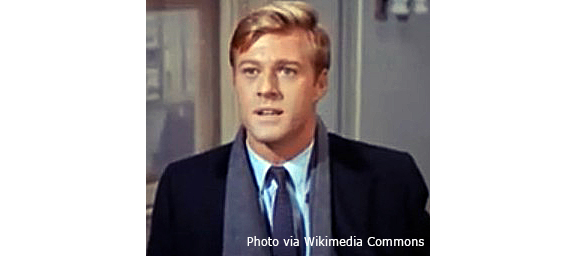Welcome to Cinematic Essence, where I critique both contemporary and classic films and discuss how they utilize narrative and mise-en-scène elements to facilitate unique experiences. I avoid spoilers when discussing recent films
Earlier this year, cinema legend Robert Redford, best known for his portrayal of the “Sundance Kid,” announced his retirement. What he left us with was Fox Searchlight Pictures’ “The Old Man & the Gun.” The film is written and directed by David Lowery and, besides Redford, stars Sissy Spacek, Casey Affleck, Danny Glover, Tika Sumpter and Tom Waits. It is based on a 2003 New Yorker article by David Grann, which recounts the true story of bank robber and escape artist Forrest Tucker.
Redford’s swan song is a light-hearted, funny and surprisingly uplifting experience, yet carries with it a lingering sense of melancholy — it may perhaps be best described as bittersweet. I should now warn those expecting — after reading the title — a swashbuckling adventure or a gritty thriller that this film is a slow burn. There is much time spent on characters’ contemplation and reflection. The narrative seems secondary to the emotional experience that “The Old Man & the Gun” facilitates. In that respect, the film feels more like a sentimental meditation on aging than a crime movie. The tone, in fact, remains consistent throughout the film (which is not a problem because the movie only runs for 93 minutes). Lowery likely chose to focus on mood over narrative because, like many films that are based on true events, this movie lacks a clearly defined act structure.
The relatively slow-paced story follows the exploits of newly-freed Forrest Tucker (Redford) as he goes on a spree of non-violent bank robberies with two partners. In the process he meets Jewel (Spacek) and the two form an intimate friendship that evolves into a romantic relationship. Forrest’s affairs are intercut with those of John Hunt (Affleck), who is the detective responsible for tracking down and arresting Forrest. I felt that perhaps too much time was spent with John, but not so much as to notably impede my enjoyment of the film.
I find no faults with the character of John, but Affleck constantly chews scenery. Most of his scenes — apart from a few standout moments — suffocate under the weight of his unreasonably slow, quiet and overall dreary line delivery. I understand what mindset he attempts to portray, but I feel that he mostly weighs the film down. I have no complaints with the rest of the cast. As expected, Redford’s performance is the most charming and watchable. He plays a professional criminal, yet manages to make the character seem endearing, benevolent and even sophisticated; the whole film is built around Redford’s charisma.
With respect to visuals, “The Old Man & the Gun” is remarkable. The film utilizes credits and overall on-screen text very creatively; I especially enjoyed the opening credits. Additionally, rapid cuts are used in several segments to make the pace seem faster than it actually is. The frame is often intentionally grainy and makes the film look appropriately old-fashioned. All three of these elements are combined in a sequence toward the end of the film — the one that I consider the funniest and most engaging.
The film also utilizes sound creatively. The musical choices strongly aid in setting up mood. Several non-diegetic (or perhaps intradiegetic — the film never explains) sounds are used to create suspense, or to purposely misguide audience interpretation.
“The Old Man & the Gun” is perfect for nostalgic audience members (like myself) who wish to see a movie that feels like it was made in the 1970s, but without the technological limitations of that time. Some viewers may become bored by the film’s slow pace and unchanging tone. Nevertheless, “The Old Man & the Gun” provides a heartfelt send off for a silver screen legend, although it unfortunately pays little to no homage to Hemingway.
Christoforos Sassaris is a third-year student majoring in English with minors in computer science and creative writing. PS868710@wcupa.edu

